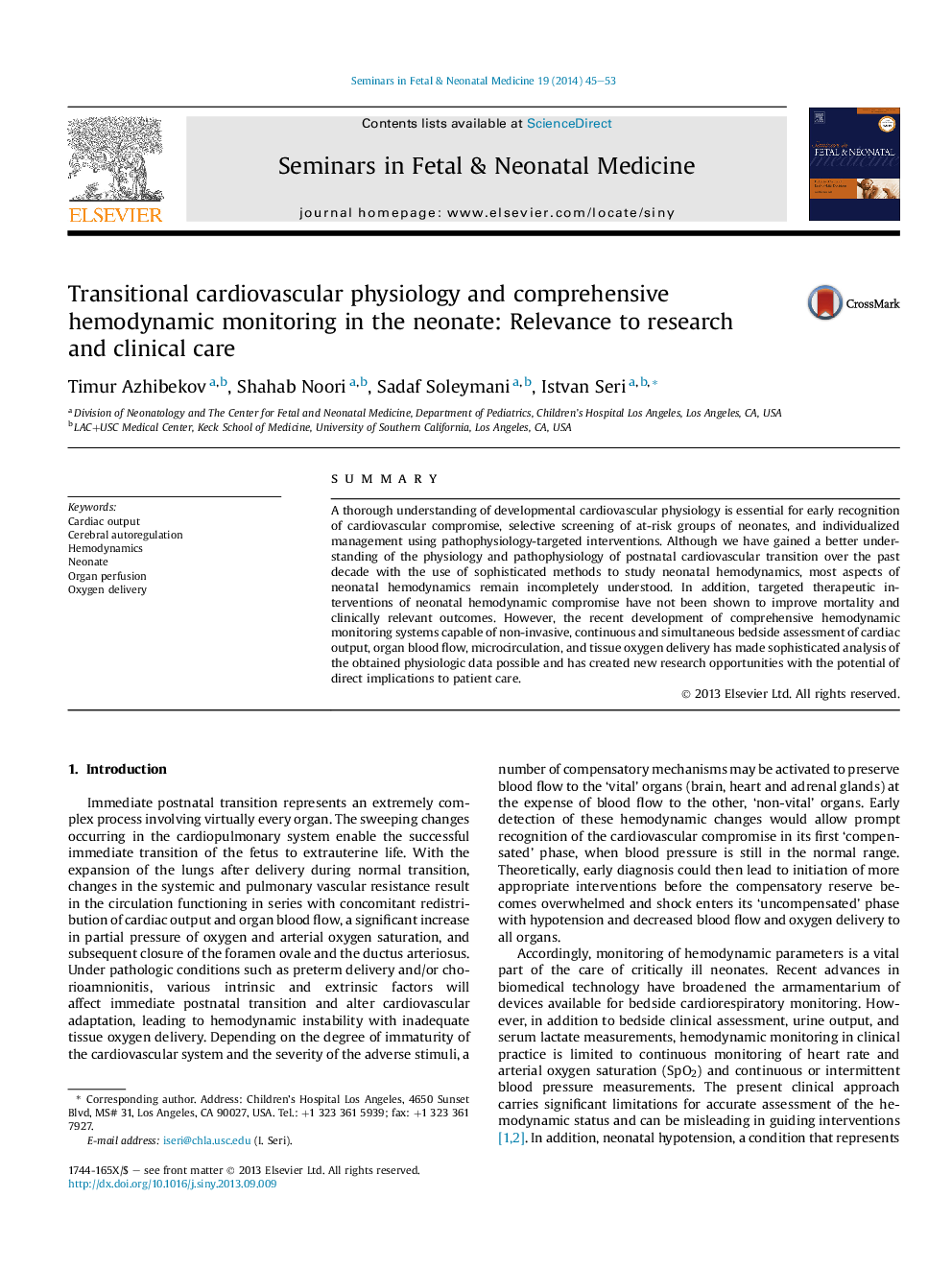| Article ID | Journal | Published Year | Pages | File Type |
|---|---|---|---|---|
| 3974143 | Seminars in Fetal and Neonatal Medicine | 2014 | 9 Pages |
SummaryA thorough understanding of developmental cardiovascular physiology is essential for early recognition of cardiovascular compromise, selective screening of at-risk groups of neonates, and individualized management using pathophysiology-targeted interventions. Although we have gained a better understanding of the physiology and pathophysiology of postnatal cardiovascular transition over the past decade with the use of sophisticated methods to study neonatal hemodynamics, most aspects of neonatal hemodynamics remain incompletely understood. In addition, targeted therapeutic interventions of neonatal hemodynamic compromise have not been shown to improve mortality and clinically relevant outcomes. However, the recent development of comprehensive hemodynamic monitoring systems capable of non-invasive, continuous and simultaneous bedside assessment of cardiac output, organ blood flow, microcirculation, and tissue oxygen delivery has made sophisticated analysis of the obtained physiologic data possible and has created new research opportunities with the potential of direct implications to patient care.
